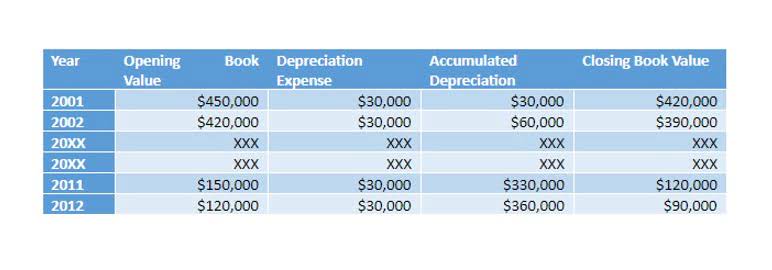Content

Most accounting software has features to reconcile bank statements with the general ledger entries automatically. You need to ensure that every financial transaction in your business goes into a general ledger. For example, salaries and bill payments are expenses, and you should record them as debit transactions. But the payments you receive from your customers are credit transactions. You can manage your startup accounting through different systems — manual, automated, or enterprise resource planning (ERP).
When setting your financial goals, consider three distinct elements — the past, present, and future. Going full steam ahead without a financial forecast is a waste of time and money. Start by documenting expenses, then classify them into appropriate categories such as bill payments, vendors, administration, or miscellaneous. Remember that every dollar spent takes the company one step away from profit. Understand the benefit gained from every expense and document it carefully.
Tips for Startup Accounting
FinancePal doesn’t just help with accounting, we also provide bookkeeping for startups. Now that we’ve covered the basics of accounting for startups, let’s switch our focus to some bookkeeping essentials. When you first start out, it can be challenging to keep track of all the money you’re owed. To help you avoid losing money, potentially making errors in your books, and struggling to collect money from clients, you will need to figure out how you’re going to handle payments.

It also tells you where you’re making money and helps you plan for business growth. As a startup, you can begin with manageable measures and gradually enhance the formality of the accounting processes as your venture matures. Also, accounting software will go a long way in managing your startup accounting. Moreover, there are several entry-level applications, such as Intuit QuickBooks and Xero, designed for startup owners with inept acumen in bookkeeping accounting basics.
Accounting Tips for Startups: Expert Advice and Strategies
Even unprofitable startups must file annual federal and state taxes every year. Your accountant monitors your financials and ensures your compliance documents are in place and accurate. Your accountant should also be available to answer your questions and help you address any issues before they become larger problems. Delayed client invoices can also make businesses too dependent on bank financing or shareholder capital funding, which can further impact their finances. According to a survey by the US Small Business Administration, small businesses that review their budget weekly, monthly, and annually have success rates of 95%, 75%, and 25%, respectively.
But properly tracking your financial transactions is part of being a business owner, whether you’re a startup or an established business owner. Even if you go with a sole proprietorship, bookkeeping for startups you’ll still need to keep your personal and business finances separate. So, ensure you open a business bank account at the very beginning of your business.
Consider paying yourself
You should also include any money you receive from investors or loans. Make sure to track your sales carefully so you can adjust your budget if needed. They’re a good choice for businesses that want to protect their personal assets from liability. Limited companies also find it easier to raise capital than other types of businesses, and they offer more tax breaks than others.
You also want to keep all the records of payments, both those you’ve made and received. This will not only allow you to provide proof should your records ever be audited, but also enable you to refer back to them in case you encounter a discrepancy. Some businesses in specific situations might benefit from hiring an accountant early. It might be easy to be put off from tackling accounting during the early days of your business.
Tip 1. Keep Personal and Business Expenses Separate
Finally, consider investing in professional advice from an accountant who understands small businesses’ needs when it comes to managing their finances correctly – especially during tax season. The software or workflows that serve your startup accounting may become inadequate as your company expands. The system may not be powerful enough to handle the increased volume smoothly.
- Following the expert advice and strategies discussed here can establish a solid financial foundation for your venture.
- A workable, efficient accounting system for startups depends on the decisions you make and the workflows you set up.
- Kruze’s team of professional bookkeepers will work with you to find the financial delivery date that meets your needs.
- However, this does not mean financial records are not important from the start.
- Getting a business bank account is one of the first steps you should take as a small business owner.
This is when you take your financial model or projections and compare them every month to your actual results. For example, you compare your accounting numbers versus your projection numbers. The reason why this is so powerful is it brings a lot of scrutiny and discipline to the company.
Fundamental accounting tasks
Accounting is an important subject for any business owner to know, especially as it’s often considered the “language of business”. Monitoring key financial metrics is crucial for evaluating the performance and growth of your startup. An efficient inventory management system can help you track stock levels, minimize the risk of overstocking or stockouts, and prevent potential losses due to theft or damage. Get a close-up view of how accounting on Salesforce can eliminate the need for costly integrations—and silos of mismatched information—by sharing the same database as your CRM. They pile on more apps and spreadsheets, making the system more complicated and confusing. They become used to the flaws in their system and don’t make the effort to upgrade.
However, once you do, those returns must be filed away and kept for at least three years, although it may be a good idea to keep them longer. Your supplier calls to let you know that they won’t be shipping any products until you pay your bill. Nurture and grow your business with customer relationship management software. Performing a cash flow forecast (where you estimate cash coming in and out based on previous performance) will help you anticipate and plan for any shortages and surpluses and adjust as needed.
Essential Accounting Tips For Startups
Using accounting software, running financial statements takes less than a minute, but the details in those reports can tell you a lot about your business. An automated accounting system is a tool connected to your business bank account and credit cards. It automatically creates a record for https://www.bookstime.com/articles/what-is-opportunity-cost each financial transaction and helps you pay bills, schedule invoices, and create financial reports. Some businesses account for income and expenses as and when they happen, which is called cash basis accounting. In this method, you mark a transaction only when you spend or receive money.